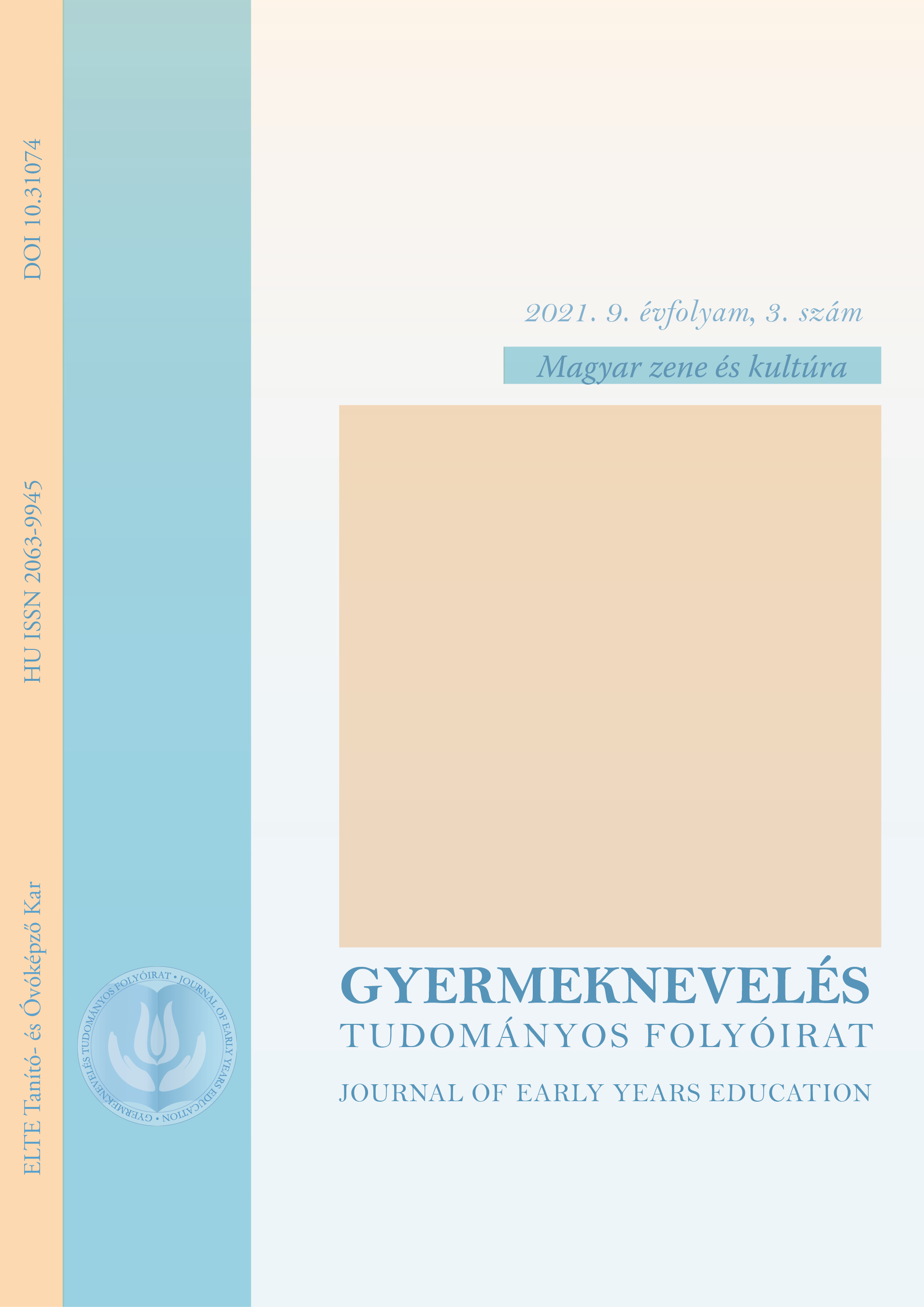Measuring music skills in a digital environment – Introducing an independently developed instrument
DOI:
https://doi.org/10.31074/gyntf.2021.3.44.56Keywords:
digital instrument, measuring music skills, melody-singing, rhythm-clappingAbstract
Although computer-based music skills assessment has an almost forty-year history, there is a lack of a complex digital instrument which is not only user-friendly, but also supports researchers in collecting, analyzing and storing data. Therefore, we have undertaken a specific task, that is, to measure melody-singing and rhythm-clapping with a new, Android OS-based software. The application is capable of recording data without a need for an interviewer as well as analyzing data and uploading results to an online database. This article presents the developmental concept of our test program, and describes its main features.
Downloads
References
Asztalos, K. (2014). A zenei észlelési képesség fejlődése 5–17 éves korban – online diagnosztikus mérések óvodai és iskolai környezetben. PhD értekezés. Szegedi Tudományegyetem, Neveléstudományi Doktori Iskola.
Blanke, J. & Kinnock, S. (2010). The Lisabon review 2010. Towards a more competitive Europe? World Economic Forum.
Csapó, B., Ainley, J., Bennett, R. E., Latour, T. & Law, N. (2012). Technological issues for computerbased assessment. In Griffin, P., McGaw, B., & Care, E. (Eds.), Assessment and teaching of 21st century skills (pp. 143‒230). Springer. https://doi.org/10.1007/978-94-007-2324-5_4
Janurik, M. & Józsa, K. (2013). A zenei képességek fejlődése négy- és nyolcéves kor között. Magyar Pedagógia, 113(2), 75–99.
Józsa, K., Hricsovinyi, J. & Szenczi, B. (2015). Számítógép-alapú Elsajátítási motiváció kérdőívek validitása és reliabilitása. In Csapó, B. & Zsolnai, A. (Eds.), Online diagnosztikus mérések az iskola kezdő szakaszában (pp. 123–146). Nemzedékek Tudása Tankönyvkiadó.
Józsa, K., Barrett, C. K., Józsa, G. & Morgan, A. G. (2019). FOCUS teszt: új, számítógépalapú vizsgálati eszköz 3–8 éves gyermekek számára. Gyermeknevelés Tudományos Folyóirat, 7(2–3), 111–124. https://doi.org/10.31074/201923111124
Józsa, K., Barrett, K. C. & Morgan, G. A. (2017). Game-like tablet assessment of approaches to learning: Assessing mastery motivation and executive functions. Electronic Journal of Research in Educational Psychology, 15(3), 665‒695. https://doi.org/10.14204/ejrep.43.17026
Molnár, Gy. & Csapó, B. (2013). Az eDia online diagnosztikus mérési rendszer. In Józsa, K. & Fejes, J. B. (Eds.), PÉK 2013 – XI. Pedagógiai Értékelési Konferencia: Program – Tartalmi összefoglalók. CEA 2013 11th Conference on Educational Assessment: Program – Abstracts (p. 82). SZTE Neveléstudományi Doktori Iskola.
Surján, N. & Janurik, M. (2018). A zenei észlelés fejlettségének vizsgálata hagyományos és számítógépes tesztfelvétellel. Gyermeknevelés Tudományos Folyóirat, 6(2), 32‒48. https://doi.org/10.31074/gyn201823248
Downloads
Published
How to Cite
Issue
Section
License
Copyright (c) 2021 Author

This work is licensed under a Creative Commons Attribution-NonCommercial-ShareAlike 4.0 International License.

